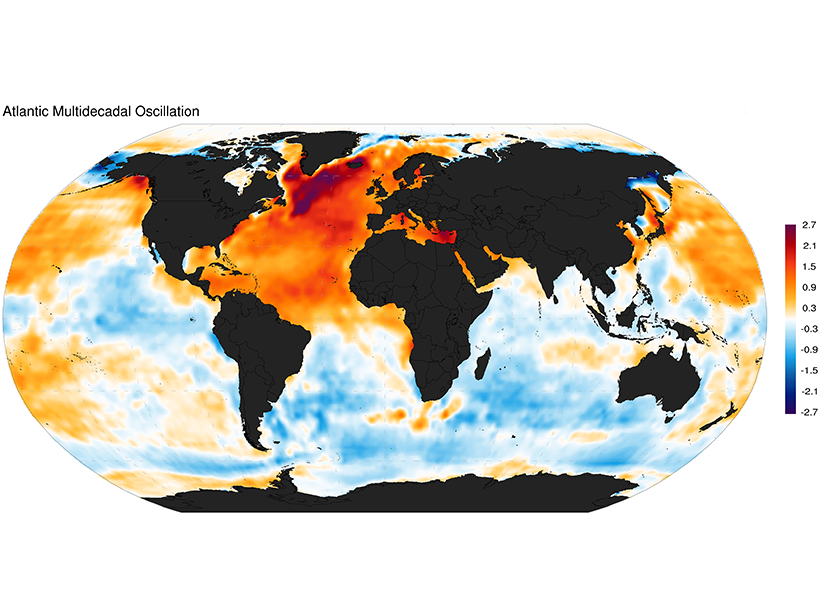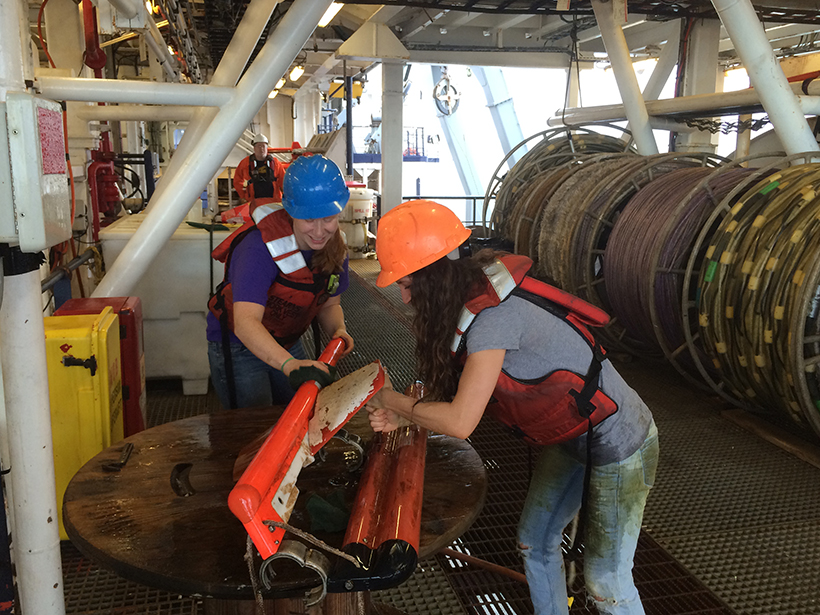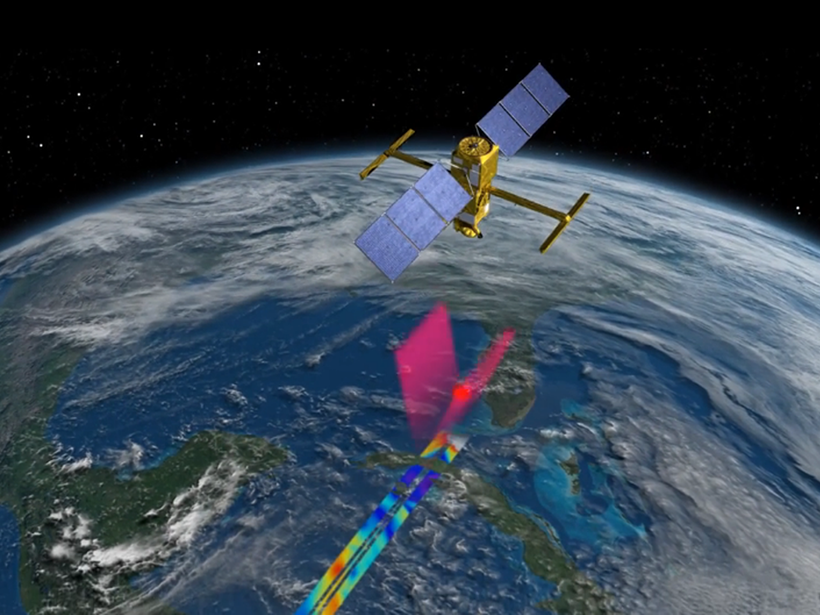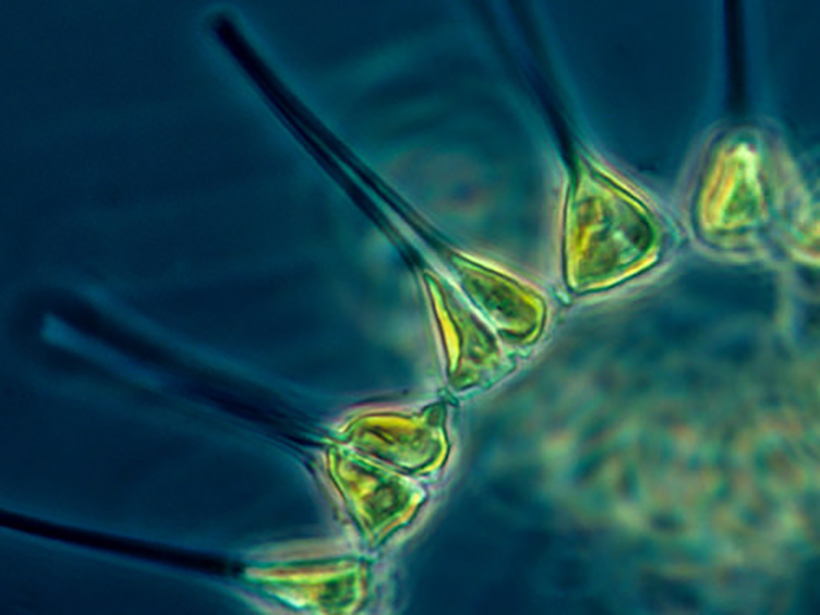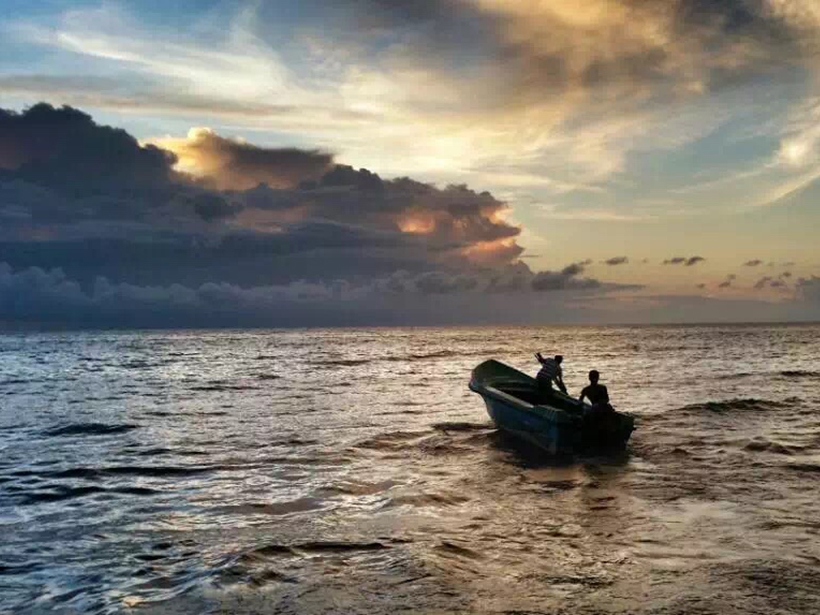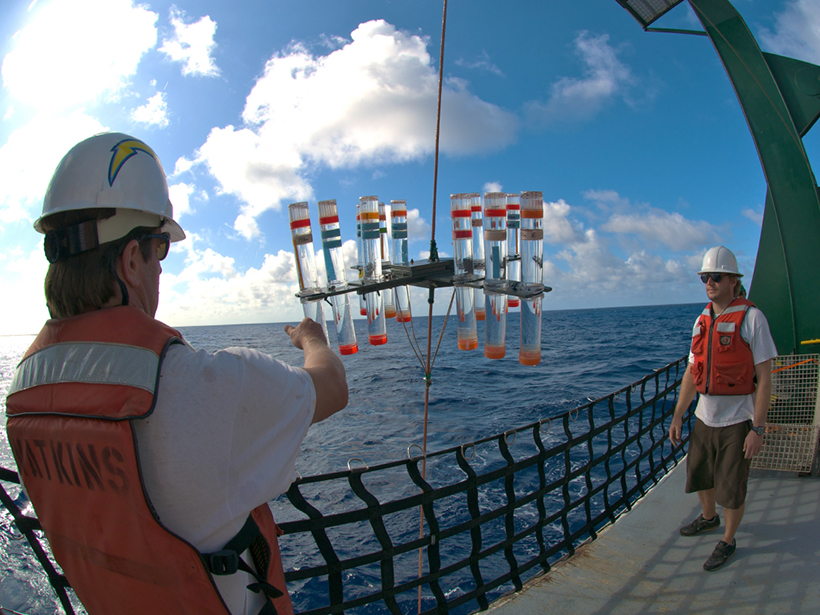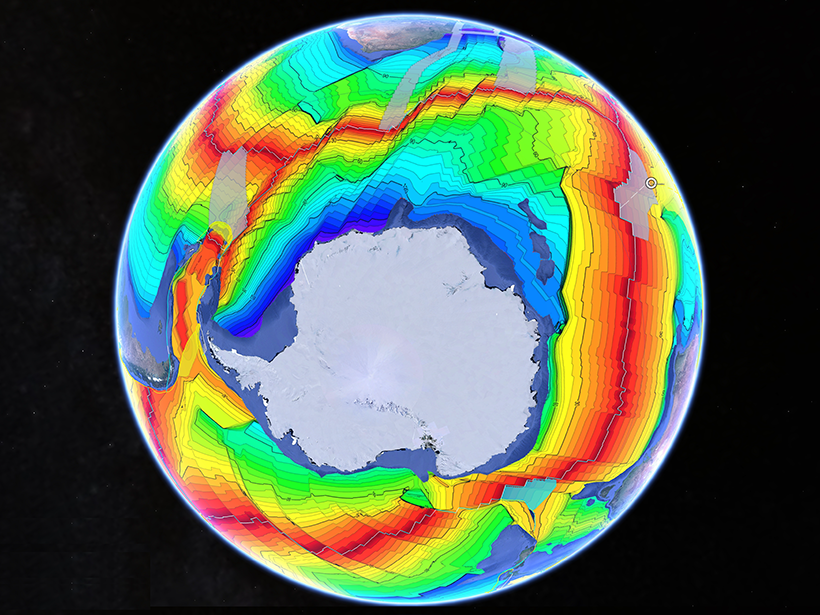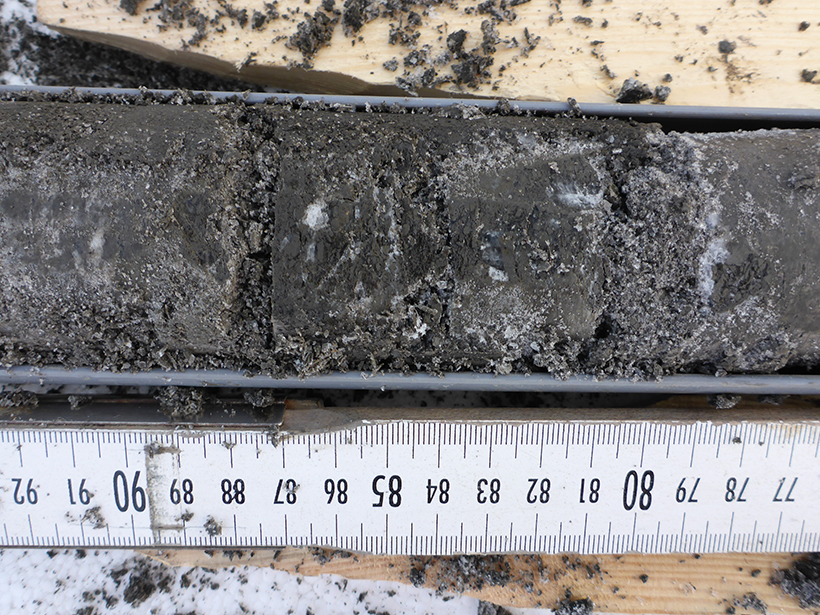The 1st Workshop of the SOOS WAP Working Group; Cambridge, United Kingdom, 15–16 May 2017
In Icy Waters: The Future of Marine Biogeochemical Research off the West Antarctic Peninsula; Chicheley, United Kingdom, 17–18 May 2017
Oceans
Ocean Dynamics May Drive North Atlantic Temperature Anomalies
A new analysis of sea surface temperature and salinity over several decades seeks to settle the debate on which of two mechanisms underlies the Atlantic Multidecadal Oscillation.
Keeping Our Focus on the Subseafloor
Hard-pressed funding agencies wonder whether marine seismic facilities are worth the investment. A recent survey gives a resounding yes.
Putting Satellite Maps of Surface Water to Practical Use
2nd SWOT Application User Workshop: Engaging the User Community for Advancing Societal Applications of the Surface Water Ocean Topography (SWOT) Mission, Reston, Virginia, 5–6 April 2017
World’s Biggest Oxygen Producers Living in Swirling Ocean Waters
Oceanographers probe the impact of deep swirling vortices on phytoplankton.
Taking the Pulse of the Planet
How fast is Earth warming? Ocean heat content and sea level rise measurements may provide a more reliable answer than atmospheric measurements.
Monitoring Ocean Change in the 21st Century
Time series data sets, which contain measurements repeated over a span of decades, yield important insights into our oceans’ vital signs.
A Grand Tour of the Ocean Basins
A new teaching resource facilitates plate tectonic studies using a Google Earth virtual guided tour of ocean basins around the world.
Microbes May Thrive in Subsea Permafrost Long After Flooding
Two cores from the East Siberian Arctic Shelf reveal how microbial communities develop over thousands of years as submarine permafrost slowly thaws.
Detecting Gas Leaks with Autonomous Underwater Vehicles
A Norwegian team develops an improved, cost-effective method to detect chemical discharges under the sea.


